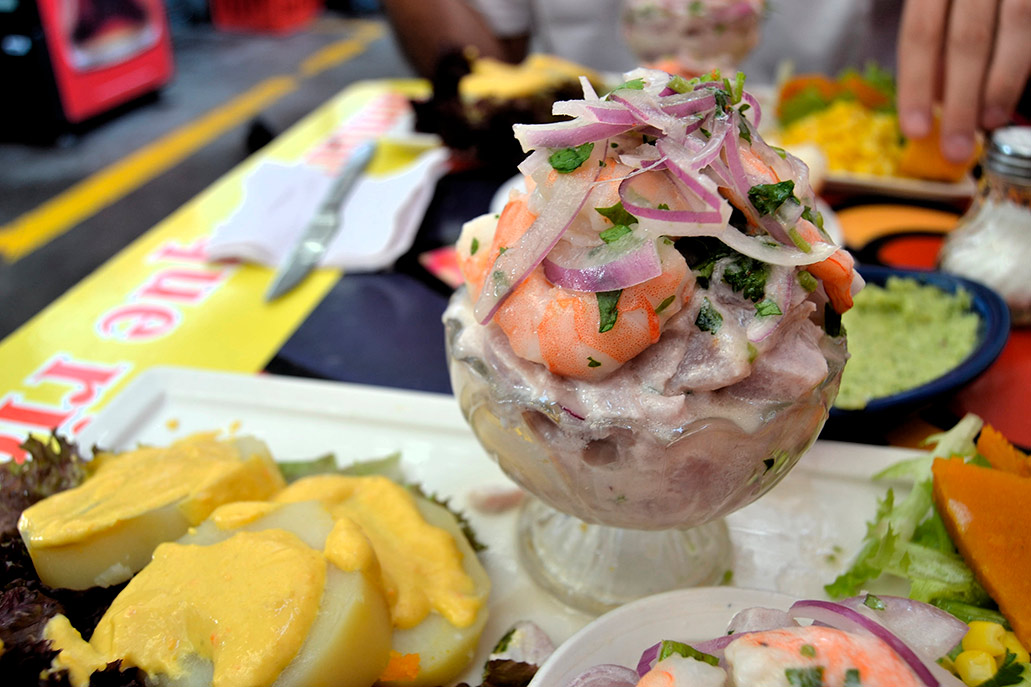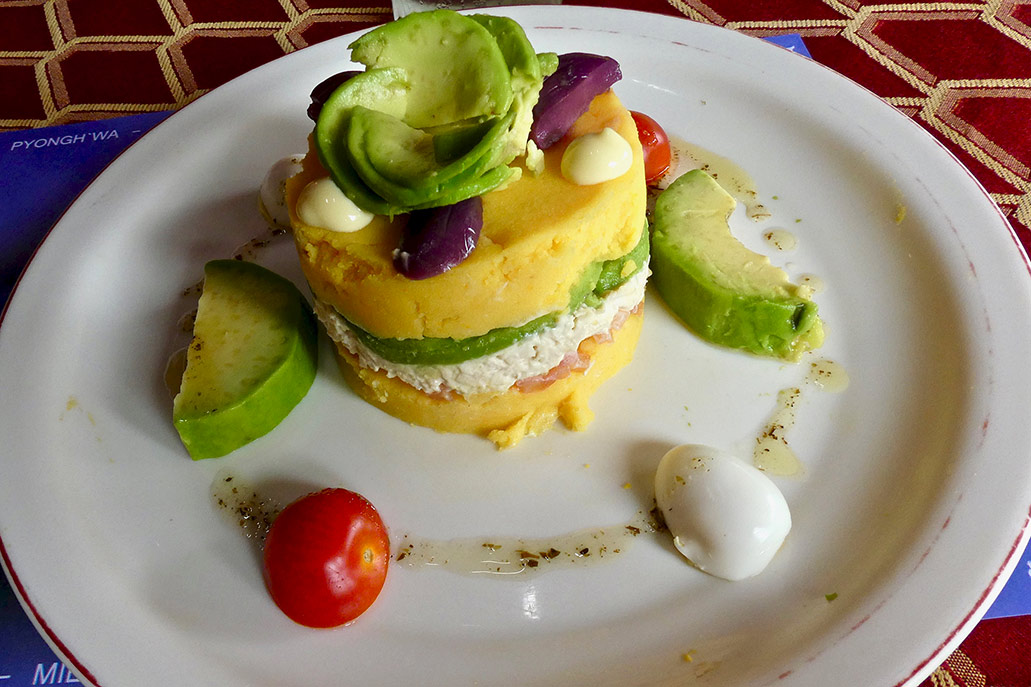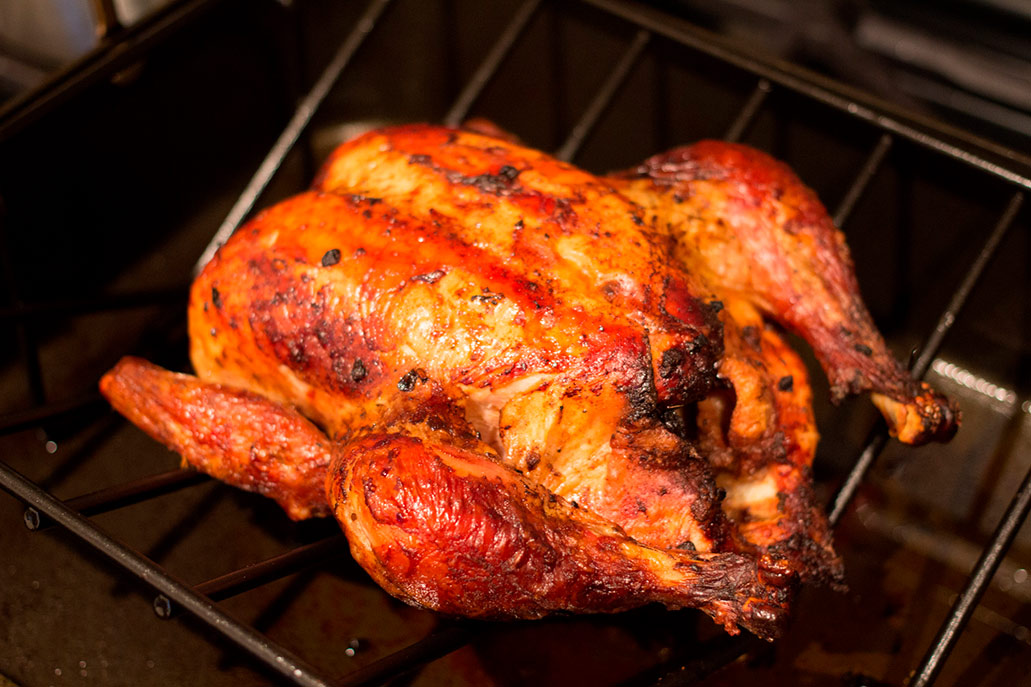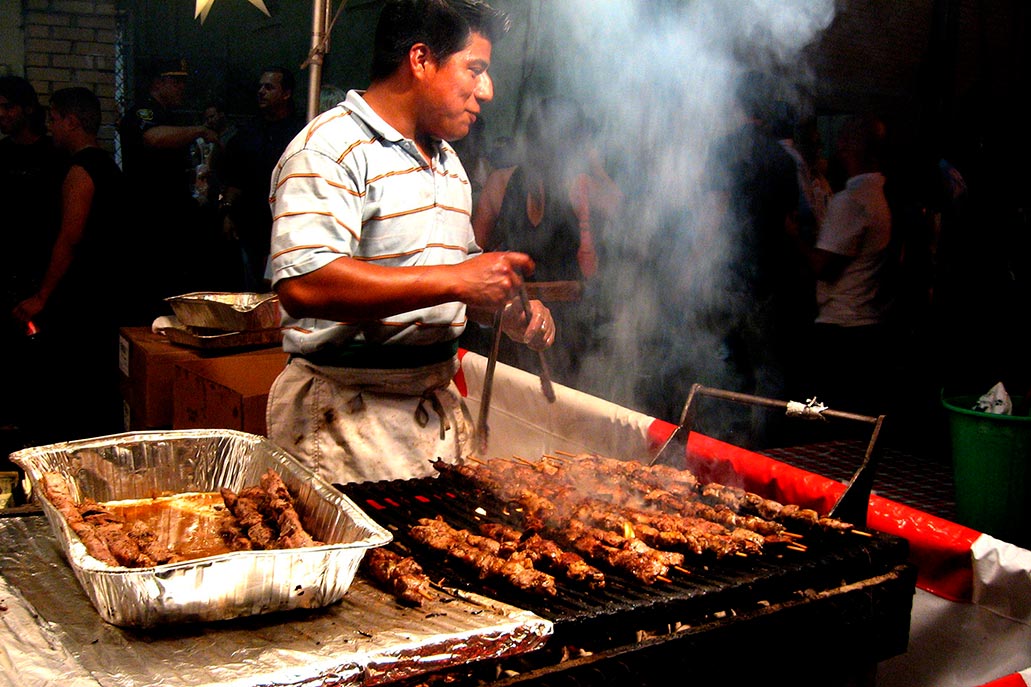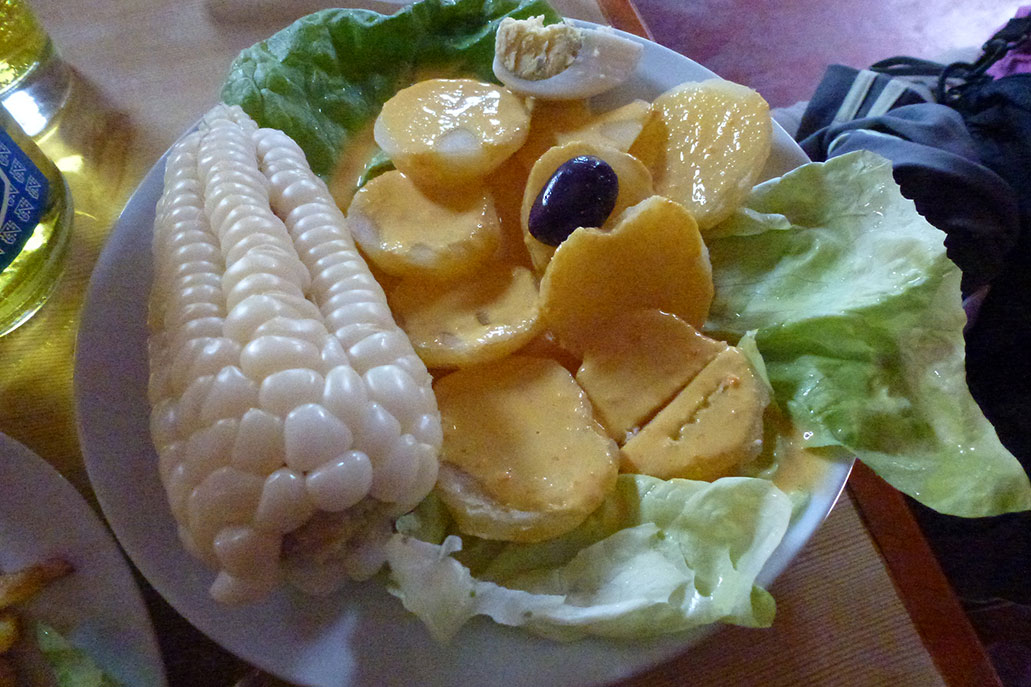8 delicious dishes of Peruvian gastronomy
Peruvian gastronomy is one of the best on the planet. This is due to a long history of fusion of flavors, unique ingredients, tradition and culinary innovation. As a result, for example, the Peruvian restaurant Central was chosen as the best in the world in 2023. The most representative dish, without a doubt, is ceviche. Get to know the eight most delicious and recommended dishes of Peruvian gastronomy. To eat!
Content
More Peruvian than the potato. Peruvian gastronomy would not be what it is without the presence of the potato. In the country there are more than 4 thousand varieties of potatoes, the most extensive in the world. Varieties such as the white potato, the yellow potato, the canchán potato, the huamantanga, Yungay, Peruvian potato and more stand out. Thanks to this tuber you can prepare traditional dishes such as the Lima cause, the salted loin, the chicken chili, the grilled chicken, the huancaína potato and more. In other words, the best of Peruvian cuisine.
The ceviche
Ceviche is the flagship dish of Peru. In other words, it crosses borders and is prepared in the best restaurants in the world. It is made from raw fish marinated with Peruvian lemon juice. It is usually served accompanied by chopped onion, sweet potato, lettuce, seafood and corn. It is mainly served as an appetizer or main dish. Its secret ingredient is yellow chili, located mainly in Peruvian territory.
Ceviche is considered as Cultural Heritage of Peru. However, it is cooked all over the world, in whose region hundreds of varieties derive. Its origin is believed to date back more than a thousand years, to the Moche culture, who cooked the fish with the juice from the fermentation of passion fruit and banana. It is even believed that the Incas fermented fish with chicha (drink made from corn).
- Where to eat?: In restaurants and markets throughout Peru (mainly in the Peruvian coastal regions such as Lima, Ica, Trujillo, Chiclayo, Piura and Tumbes).
- Approximate price: From 10 Peruvian soles to 100 Peruvian soles depending on the restaurant of your choice.
The Lima cause
The Lima cause is one of the most delicious dishes of Peruvian gastronomy. It is also called the Peruvian cause or simply ’cause’. Its main ingredient is the yellow potato stuffed with chicken (or tuna) with mayonnaise and vegetables such as carrots and tomatoes. It is usually accompanied by black olives and boiled egg. It is presented in a very striking round shape and is used as an entree dish.
The name ’cause’ comes from a Quechua word meaning ‘what feeds’. It is also believed that its name derives from the word ‘Cause of independence’ because it served as food for the libertarian troops of Peru. Although it is called Lima, it has many varieties according to the region of Peru. In Arequipa it is stuffed with shrimp, in northern Peru (Tumbes and Piura) it can be accompanied by grouper fish.
- Where to eat?: In markets and restaurants throughout Peru.
- Approximate price: From 5 Peruvian soles to 50 Peruvian soles depending on the restaurant of your choice.
The salted loin
The salted loin is one of the most emblematic dishes of Peru due to the ease of its preparation, its low cost and its delicious flavor. Its main ingredient is meat seasoned in a wok pan with soy sauce, yellow pepper, vinegar, garlic, and salt and pepper. It is served accompanied by fried potatoes and white rice. It is consumed in popular markets in all regions of Peru, both in markets and in luxurious restaurants.
Lomo saltado has an interesting history that dates back to Chinese immigration to Peru in the 19th and 20th centuries. Chinese immigrants introduced the wok whose food cooking is necessary for preparation. The renowned Peruvian chef Gastón Acurio called it “the father of Peruvian food dishes.” It is believed that 70% of tourists who visit Peru try this popular dish of international fame.
- Where to eat?: In popular restaurants and markets in all regions of Peru.
- Approximate price: From 8 to 70 soles depending on the restaurant of your choice.
The rice with chicken
Chicken rice is one of the favorite dishes of Peruvian families. As its name indicates, it is made with green grained rice and cooked chicken, which are seasoned with coriander and spinach, which adds a characteristic subtle green color with great flavor. Sometimes it is accompanied with huancaína potatoes, carrot slices, lettuce, white corn and, even in some regions, instead of chicken it is prepared with cooked duck.
In other regions of the world there are other varieties of chicken rice. For example, in Colombia and Panama the chicken is shredded. Families in Peru prefer this dish for its delicious flavor and low cost. It is believed that the original dish was prepared in northern Peru based on duck. However, in Lima the dish was very expensive, so chicken was used, which is cheaper and easier to cook.
- Where to eat?: In popular markets and restaurants in all regions of Peru (in regions of Lambayeque, La Libertad, Piura and Tumbes it is usually prepared with duck).
- Approximate price: From 8 to 80 peruvian soles depending on the market or restaurant of your choice.
The chicken chili
Due to its exquisite flavor, ají de gallina is one of the most delicious dishes of Peruvian cuisine. It has a showy yellow creamy plate appearance that draws the attention of the whole family. Its main ingredient, in addition to the pieces of chicken or cooked chicken, is the Peruvian yellow chili, which impregnates it with a characteristic flavor. It is also accompanied with white rice, boiled egg, lettuce and sliced parboiled potato.
It is believed that ají de gallina has a history that goes back to the time of the Spanish colony (16th century). From Spain came the dish called ‘Menjar Blanc’, a white delicacy made with chicken breast, sugar and flour. This sweet was transformed in Peru using ají amarillo as the main ingredient. Initially it was consumed by the popular classes. Today it is a dish consumed in all regions of Peru regardless of their socioeconomic level.
- Where to eat?: In popular markets and restaurants in all regions of Peru.
- Approximate price: From 8 soles to 60 Peruvian soles depending on the commercial establishment of your choice.
The grilled chicken
Peru is one of the main consumers of chicken in the year (approximately 47 kilos per person per year). This data is explained, in large part, by the widespread consumption of grilled chicken, a dish declared in 2004 as National Heritage. Obviously its main ingredient is grilled chicken seasoned with panca pepper, oregano, soy sauce and garlic. It is accompanied with French fries, salads and mayonnaise.
In Peru, the popularity of this dish is such that even every third Sunday of July the country celebrates ‘Grilled Chicken Day’. Peruvians prefer to eat grilled chicken for dinner. However, it is also (and recommended) consumed at lunch. It is rarely offered in tourist restaurants or not. The establishments that offer this dish are the so-called ‘pollerías’, present in all regions of Peru.
- Where to eat?: In chicken shops in all regions of Peru.
- Approximate price: From 12 soles (a quarter of a grilled chicken) to 80 soles (a whole chicken).
The anticucho
The anticucho is one of the most emblematic and traditional dishes of Peruvian cuisine. It is made from beef heart, although it can also be made from slices of beef. The secret of its flavor is that it is seasoned with vinegar, red pepper, cumin and garlic. Its presentation is usually with slices embedded in an ‘anticucho stick’. The preparation is done on a grill and is usually accompanied by parboiled potatoes.
The word anticucho comes from two Quechua words ‘Anti’ and ‘Kuchu’ which together mean ‘Cuts in the Andes’. Its origin dates back to the 16th century with the arrival of African slaves in Peru. They cooked their food with the heart of beef, an inexpensive viscera compared to the loin (the heart was often thrown away by the Spanish rulers). Over the years, its good taste has become popular throughout the country.
- Where to eat?: In the street stalls of all regions of Peru.
- Approximate price: From 5 to 50 Peruvian soles depending on the commercial establishment of your choice (also present in tourist restaurants).
Huancaina potato
Papa a la huancaína is one of the most famous and consumed dishes of Peruvian gastronomy. Although its name refers to the Huancayo region, its consumption and preparation is widespread throughout the country. It is made with yellow chili ocopa, fresh cheese, soda cracker, oil and evaporated milk. It is also consumed accompanied by traditional dishes such as rice with chicken.
The delicious flavor of the huancaína potato has made it consumed in other countries such as Bolivia. The yellow chili, the most important ingredient and present in other traditional dishes, is up to 4 thousand years old since it was found in archaeological sites of Huaca Prieta and Ancón. Its origin dates back to the 20th century, when the construction of the central railway of Peru began in Huancayo.
- Where to eat?: In the main markets and restaurants throughout Peru.
- Approximate price: From 5 to 75 soles depending on the restaurant you choose (usually accompanies red noodles or rice with chicken).
By Machupicchu Terra – Last updated, October 4, 2023

